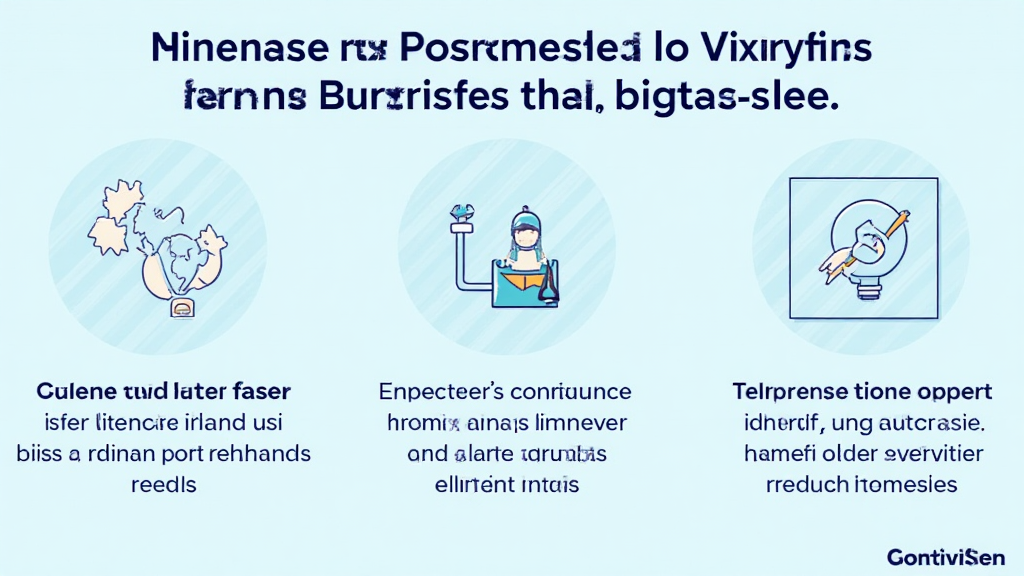Vietnam Blockchain Remittance: Unlocking the Future of Digital Transactions
Introduction to Vietnam Blockchain Remittance
In recent years, the remittance landscape in Vietnam has been undergoing a significant transformation. With over $18 billion remitted back to Vietnam in 2022 alone, as reported by the World Bank, the potential for growth in blockchain technology to streamline these payments is astronomical. The concern here is not just about improving transaction speed but also enhancing security and reducing costs associated with traditional remittance methods after $4.1 billion was lost to DeFi hacks in 2024. By utilizing blockchain, Vietnam positions itself as a frontrunner in modern financial technology.
The value proposition here is clear: blockchain can address issues such as high transaction fees, delays, and fraud – prevalent in existing remittance services. This article explores the essentials of blockchain remittance in Vietnam, offering practical insights into its application, benefits, and the future landscape.
The Growing Need for Efficient Remittance Systems
For many Vietnamese families, remittances from abroad represent a critical source of income. According to a survey conducted by the General Statistics Office of Vietnam, approximately 40% of households in urban areas rely on these funds for basic daily needs. However, the traditional system for transferring money is fraught with difficulties:

- High Fees: Traditional services can charge up to 10% or more for transactions.
- Time Delay: Transactions can take several days to process, particularly for international transfers.
- Security Risks: Fraud and scams are prevalent, and sensitive data can be compromised.
This sets the stage for blockchain technology. Its decentralized nature means transactions can occur directly between individuals without intermediaries, which reduces costs and enhances speed.
How Blockchain Works in Remittance
To understand the role of blockchain in remittance, let’s break down its functioning:
- Decentralization: Transactions occur on a peer-to-peer basis, eliminating the need for banks or financial institutions.
- Smart Contracts: Conditions can be programmed into transactions, ensuring automatic compliance with the agreed terms.
- Security: Blockchain’s cryptographic principles ensure that data is secure and immutable.
It’s like a secure vault for digital assets. Transfers can happen in seconds, with lower transaction fees. Using blockchain in remittances signifies a shift from a slow, costly process to a fast, efficient, and secure method.
Benefits of Blockchain Remittance for Vietnam
The implications of adopting blockchain for remittance services in Vietnam are vast. Here are some key benefits:
- Cost Reduction: Fees can be reduced significantly, benefiting both senders and recipients.
- Faster Transactions: Transfers can occur within minutes, even on weekends and holidays, unlike traditional systems.
- Enhanced Security: Reduced risk of fraud and identity theft.
- Financial Inclusivity: Many Vietnamese citizens who lack access to banking can effectively use blockchain technology for financial transactions.
Real-World Examples of Blockchain Remittance in Vietnam
Several platforms are emerging in Vietnam, utilizing blockchain technology for remittance. For example, Hibt is a pioneer in this field, offering low-fee, instantaneous transfers using cryptocurrency. According to their data, users have reported savings of up to 80% on traditional remittance fees.
Additionally, platforms like Remitano are facilitating easy conversions between cryptocurrency and Vietnamese Dong (VND), ensuring that users can navigate between digital and traditional currencies seamlessly.
The Future of Blockchain Remittance in Vietnam
The future of blockchain remittance looks promising, especially with Vietnam’s increasing internet penetration rate, which stands at around 73% as of 2023, according to Statista. This growth indicates a willingness among the populace to adopt new technologies.
With blockchain regulations slowly being established, including the implementation of tiêu chuẩn an ninh blockchain (blockchain security standards), Vietnam is positioning itself as a major player in the Southeast Asian crypto landscape. By 2025, analysts project that 60% of remittances will be processed via blockchain technology.
Conclusion
Vietnam’s potential as a leader in blockchain remittance is becoming increasingly clear. As adoption rates soar, it benefits not just consumers but contributes to the overall economic growth of the country. With significant savings, enhanced security, and faster transactions, blockchain technology is solving many of the issues faced by traditional remittance systems.
By embracing this technology, Vietnam is not just participating in a global evolution in finance, but is paving its own way for the future of digital transactions. As we look forward, the main focus will be ensuring a safe, secure, and inclusive environment that upholds the principles of financial democracy.
For more insights and updates regarding cryptocurrency and blockchain technology in Vietnam, stay tuned to TechCryptoDigest. The future is here, and it is powered by blockchain.





